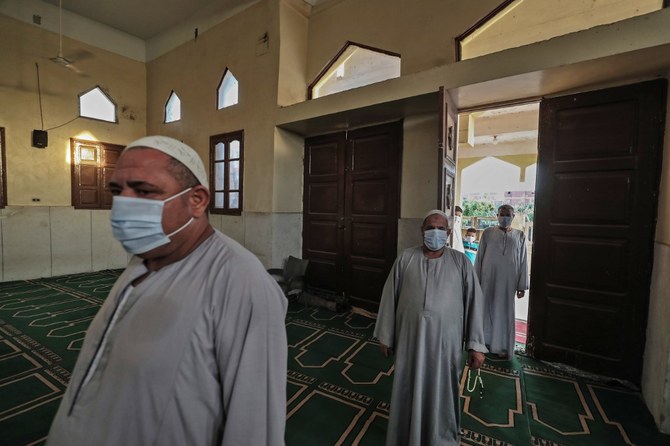DUBAI: Efforts to return life gradually back to some kind of normality in parts of the Middle East continue, as governments get ready to reopen borders and airlines take bookings for flights.
Tunisia said it will open its sea, land and air borders on June 27 in the hope of rescuing its tourism industry as the coronavirus pandemic comes under control.
Emirates airline also announced that it was taking bookings for flights from Dubai to 12 Arab countries from the start of July. Emirates began operating scheduled flight services to nine destinations around the world from May 21, including London Heathrow, Frankfurt, Paris, Milan, Madrid, Chicago, Toronto, Sydney and Melbourne.
Meanwhile, Lebanon’s commercial complexes, hotels, cafes and museums reopened their doors to customers on Monday after closing for two-and-a-half months.
June 2, Tuesday (GMT Times)
15:42 - Greece said it was suspending flights to and from Qatar until June 15 after multiple coronavirus cases on a flight from Doha to Athens.
The Greek civil protection authority said 12 out of 91 people on a Qatar Airways flight that arrived on Monday had tested positive for COVID-19.
14:19 - Emirates will make a decision on the size of its future fleet in the next few months once there is greater clarity on whether demand for travel will start to rebound next year, the airline’s president said on Tuesday.
“We need a little more time to see how this is all going to pan out,” he said in an online interview with industry publication Aviation Week.
13:41 - Dubai will allow full reopening of malls and private sector businesses starting on Wednesday, the emirate’s media office announced in a statement.
#Dubai's shopping malls and private sector businesses to fully operate at 100% capacity. pic.twitter.com/F3h8ynBK1D
— Dubai Media Office (@DXBMediaOffice) June 2, 2020
12:45 - Saudi Arabia registered 1,869 new coronavirus cases and 1,484 people have recovered.
12:13 - Zimbabwean troops and police on Tuesday tightened the coronavirus lockdown in the capital Harare, blocking many cars and buses from entering the central business district as cases of infections increased.
11:44 - Qatar has reported 1,826 coronavirus cases, raising total to 60,259.
11:28 - Scientists have found 27 key proteins in the blood of people infected with COVID-19 which they say could act as predictive biomarkers for how ill a patient could become with the disease.
10:24 - Kuwait has confirmed 887 coronavirus cases and the recovery of 50 percent of total infected people.
10:22 - UAE has recorded 596 coronavirus cases and 388 recoveries.
09:43 - New reported cases of coronavirus are steadily declining in Western Europe, but not in Russia and Eastern Europe: World Health Organization spokeswoman said.
09:34 - Formula One has unveiled an eight-race schedule in Europe from July 5 amid the coronavirus pandemic.
09:32 - Iran has reported 64 coronavirus deaths, 3,117 cases, raising total infected people to 157,562 with 7,942 fatalities.
09:20 - The number of coronavirus deaths in Britain is close to 50,000, Reuters reported.
09:07 – Hong Kong will extend restrictions on foreign visitors by another three months and an eight-person limit on group gatherings by two weeks, Health Secretary Sophia Chan said on Tuesday.
Both measures were due to expire later in June.
Travellers to Hong Kong need to undergo a mandatory 14 day quarantine period.
08:45 – 12,739 people died from coronavirus in England and Wales as of May 22, the Office for National Statistics said.
08:16 – Senegal has postponed the restart of schools until further notice after several teachers tested positive for the new coronavirus, the education ministry said late on Monday.
07:51 – Russia has confirmed 8,863 coronavirus cases and 182 deaths in the past 24 hours.
07:02 – A Wuhan doctor who worked with coronavirus whistleblower Li Wenliang died of the virus last week, state media reported Tuesday, becoming China's first COVID-19 fatality in weeks.
07:00 – Paris gets some of its pre-lockdown life back as cafes and restaurants partially reopen Tuesday.
06:51 – The global coronavirus death toll has topped 375,000, according to AFP tally.
06:45 – The first Rohingya refugee died from coronavirus in Bangladesh, an official said.
05:59 – Egypt has sanitized prisons and carried out tests on prisoners across the country after banning visits to help curb the spread of coronavirus, local daily Egypt Today reported.
05:50 – A cluster of nine coronavirus cases raised concerns in Hong Kong over renewed local transmission in a city that has been one of the most successful in keeping the pandemic under control.
05:18 – The United States on Monday recorded 743 new coronavirus deaths in 24 hours, according to the Johns Hopkins University tracker, bringing its total to 105,099 since the global pandemic began.
















